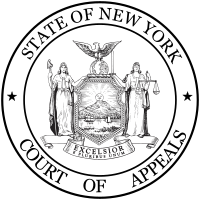Larceny is a crime involving the unlawful taking or theft of the personal property of another person or business. It was an offence under the common law of England and became an offence in jurisdictions which incorporated the common law of England into their own law, where in many cases it remains in force.
An inchoate offense, preliminary crime, inchoate crime or incomplete crime is a crime of preparing for or seeking to commit another crime. The most common example of an inchoate offense is "attempt". "Inchoate offense" has been defined as the following: "Conduct deemed criminal without actual harm being done, provided that the harm that would have occurred is one the law tries to prevent."
Trespass is an area of criminal law or tort law broadly divided into three groups: trespass to the person, trespass to chattels, and trespass to land.
The Speedy Trial Clause of the Sixth Amendment to the United States Constitution provides that "[i]n all criminal prosecutions, the accused shall enjoy the right to a speedy and public trial". The Clause protects the defendant from delay between the presentation of the indictment or similar charging instrument and the beginning of trial.
The right of publicity, sometimes referred to as personality rights, is the right of an individual to control the commercial use of one's identity, such as name, image, likeness, or other unequivocal identifiers. It is generally considered a property right as opposed to a personal right, and as such, the validity of the right of publicity can survive the death of the individual.
Sea-Monkeys are a novelty aquarium pet, a type of brine shrimp that undergoes cryptobiosis. Developed in the United States in 1957, by Harold von Braunhut, the shrimp are intended to be added to water, and almost always come bundled in a 3-pouch kit with other required pouches and instructions. Sometimes a small tank and/or supplementary pouches may also be included with the product. The product was heavily marketed in the 1960s and 70s, especially in comic books, and remains a presence in popular culture.

The Boeing Model 247 is an early United States airliner, considered the first such aircraft to fully incorporate advances such as all-metal semimonocoque construction, a fully cantilevered wing and retractable landing gear. Other advanced features included control surface trim tabs, an autopilot and de-icing boots for the wings and tailplane.
This article addresses torts in United States law. As such, it covers primarily common law. Moreover, it provides general rules, as individual states all have separate civil codes. There are three general categories of torts: intentional torts, negligence, and strict liability torts.
In tort law, a duty of care is a legal obligation which is imposed on an individual, requiring adherence to a standard of reasonable care while performing any acts that could foreseeably harm others. It is the first element that must be established to proceed with an action in negligence. The claimant must be able to show a duty of care imposed by law which the defendant has breached. In turn, breaching a duty may subject an individual to liability. The duty of care may be imposed by operation of law between individuals who have no current direct relationship but eventually become related in some manner, as defined by common law.
Disparate impact in United States labor law refers to practices in employment, housing, and other areas that adversely affect one group of people of a protected characteristic more than another, even though rules applied by employers or landlords are formally neutral. Although the protected classes vary by statute, most federal civil rights laws protect based on race, color, religion, national origin, and sex as protected traits, and some laws include disability status and other traits as well.

José Alberto Cabranes is a United States Circuit Judge of the United States Court of Appeals for the Second Circuit and a former Presiding Judge of the United States Foreign Intelligence Surveillance Court of Review ("FISCR"). Formerly a practicing lawyer, government official, and law teacher, he was the first Puerto Rican appointed to a federal judgeship in the continental United States (1979).
The Aguilar–Spinelli test was a judicial guideline set down by the U.S. Supreme Court for evaluating the validity of a search warrant or a warrantless arrest based on information provided by a confidential informant or an anonymous tip. The Supreme Court abandoned the Aguilar–Spinelli test in Illinois v. Gates, 462 U.S. 213 (1983), in favor of a rule that evaluates the reliability of the information under the "totality of the circumstances." However, Alaska, Hawaii, Massachusetts, New York, Vermont, Oregon, and Washington have retained the Aguilar–Spinelli test, based on their own state constitutions.
Collateral consequences of criminal conviction are the additional civil state penalties, mandated by statute, that attach to a criminal conviction. They are not part of the direct consequences of criminal conviction, such as prison, fines, or probation. They are the further civil actions by the state that are triggered as a consequence of the conviction.
Conversion is an intentional tort consisting of "taking with the intent of exercising over the chattel an ownership inconsistent with the real owner's right of possession". In England & Wales, it is a tort of strict liability. Its equivalents in criminal law include larceny or theft and criminal conversion. In those jurisdictions that recognise it, criminal conversion is a lesser crime than theft/larceny.
Denise Louise Cote is a Senior United States District Judge of the United States District Court for the Southern District of New York.
The Penal Law of the State of New York combines justification and necessity into a single article, Article 35. "Defense of Justification" comprises sections 35.05 through 35.30 of the Penal Law. The general provision relating to necessity, section 35.05, provides:
§ 35.05 Justification; generally.
Unless otherwise limited by the ensuing provisions of this article defining justifiable use of physical force, conduct which would otherwise constitute an offense is justifiable and not criminal when:
Cayuga Indian Nation of New York v. Pataki, 413 F.3d 266, is an important precedent in the United States Court of Appeals for the Second Circuit for the litigation of aboriginal title in the United States. Applying the U.S. Supreme Court's recent ruling in City of Sherrill v. Oneida Indian Nation of New York (2005), a divided panel held that the equitable doctrine of laches bars all tribal land claims sounding in ejectment or trespass, for both tribal plaintiffs and the federal government as plaintiff-intervenor.
Fellows v. Blacksmith, 60 U.S. 366 (1857), is a United States Supreme Court decision involving Native American law. John Blacksmith, a Tonawanda Seneca, sued agents of the Ogden Land Company for common law claims of trespass, assault, and battery after he was forcibly evicted from his sawmill by the Company's agents. The Court affirmed a judgement in Blacksmith's favor, notwithstanding the fact that the Seneca had executed an Indian removal treaty and the Company held the exclusive right to purchase to the land by virtue of an interstate compact ratified by Congress.

François Carlo Antommarchi was Napoleon's physician from 1818 to his death in 1821.
Penguin Group (USA) Inc. v. American Buddha, 640 F.3d 497, was a case in which United States Court of Appeals for the Second Circuit reversed the decision of the United States District Court for the Southern District of New York, which had granted American Buddha's motion to dismiss Penguin Group (USA) Inc. ("Penguin")'s copyright infringement action for lack of personal jurisdiction. The appellate court remanded the case for further proceedings.



